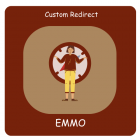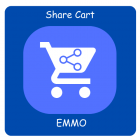How to Set Up a Magento 2 Development Environment with docker-magento

How to Set Up a Magento 2 Development Environment with docker-magento
Setting up a Magento 2 development environment can be complex, but using docker-magento simplifies the process significantly. This tool leverages Docker to create isolated containers for services like PHP, Nginx, and MySQL, ensuring a consistent and efficient setup. With just a few commands, you can quickly set up a fully functional Magento 2 environment, perfect for testing and development. Docker's lightweight containers make it easy to manage dependencies, speed up your workflow, and avoid configuration conflicts. Whether you're new to Magento or looking to streamline your development process, this guide will walk you through setting up a Magento 2 development environment with docker-magento in minutes.
How to Set Up a Magento 2 Development Environment with docker-magento
Setting up a Magento 2 development environment can be a hassle. But with docker-magento, you can have a fully functional setup in minutes. This tool simplifies the process, making it easier to develop and test Magento 2 projects locally.
What Is docker-magento?
docker-magento is a GitHub repository that provides a ready-to-use Docker configuration for Magento 2. It sets up all necessary services like PHP, Nginx, and MySQL in isolated containers. This isolation ensures that your development environment is consistent and easy to manage.
Why Use Docker for Magento 2?
Using Docker for Magento 2 development offers several advantages:
- Consistency: Ensures the same environment across different machines, reducing "it works on my machine" issues.
- Efficiency: Containers are lightweight and start quickly, saving time during setup and testing.
- Isolation: Each service runs in its own container, preventing conflicts between dependencies.
- Portability: Easily move your setup between different systems or share it with team members.
How to Set Up docker-magento
Install Docker: Ensure Docker is installed on your system.
Create a Project Directory: Open your terminal and run:
mkdir magento-docker
cd magento-docker
Run the Setup Command: Execute the following command to download and run the setup script:
curl -s https://raw.githubusercontent.com/markshust/docker-magento/master/lib/onelinesetup | bash -s -- magento.test community 2.4.8
This will set up a Magento 2.4.8 community edition instance with the domain magento.test.
Installing Sample Data
To install sample data, run the following commands:
bin/magento sampledata:deploy
bin/magento setup:upgrade
This will populate your Magento instance with sample products and data, making it easier to test and develop.
Additional Tips
- Selective Sync: docker-magento uses selective sync to improve performance. It only syncs necessary files between your host and containers, reducing overhead.
- Secure Certificates: During setup, you'll be prompted to create a secure certificate for your local domain. This is necessary for HTTPS support.
- Custom CLI Commands: docker-magento provides custom CLI commands to simplify common tasks. For example, to start the environment, you can use:
docker-compose up -d
By following these steps, you can quickly set up a Magento 2 development environment using docker-magento. This approach streamlines the development process, allowing you to focus more on coding and less on configuration.
Tip
To enhance your eCommerce store’s performance with Magento, focus on optimizing site speed by utilizing Emmo themes and extensions. These tools are designed for efficiency, ensuring your website loads quickly and provides a smooth user experience. Start leveraging Emmo's powerful solutions today to boost customer satisfaction and drive sales!
FAQs
What is docker-magento?
docker-magento is a GitHub repository that provides a Docker-based environment for setting up Magento 2 development. It simplifies the process of installing Magento by configuring all necessary services like PHP, Nginx, and MySQL in isolated containers.
Why should I use Docker for my Magento 2 development environment?
Docker allows you to create a consistent and isolated environment, eliminating "it works on my machine" issues. It’s lightweight, portable, and makes managing dependencies much easier, ensuring your development setup remains clean and efficient.
How do I set up docker-magento?
Setting up docker-magento is easy. Create a project directory, run a single curl command to download the setup script, and docker-magento will handle the rest. It will install Magento 2 with your chosen version and configure necessary services automatically.
What command do I use to set up Magento with docker-magento?
To set up Magento with docker-magento, run the following command: curl -s https://raw.githubusercontent.com/markshust/docker-magento/master/lib/onelinesetup | bash -s -- magento.test community 2.4.8. This command sets up a Magento instance with your chosen version and domain.
How do I install sample data with docker-magento?
Once Magento is set up, you can install sample data by running: bin/magento sampledata:deploy followed by bin/magento setup:upgrade. This will populate your Magento store with sample products and data for testing.
What is selective sync in docker-magento?
Selective sync in docker-magento improves performance by syncing only necessary files between the host and containers. It ensures faster operations and reduces the load on large file systems.
Do I need secure certificates for docker-magento?
Yes, docker-magento requires a secure certificate for local development. During setup, you’ll be prompted to create a certificate for your local domain to enable HTTPS support.
How do I start my Magento 2 development environment with docker-magento?
To start your environment, navigate to your project directory and run the following command: docker-compose up -d. This will initialize the containers and make your Magento 2 instance accessible.
What is the impact of using the cache:clean command in docker-magento?
The cache:clean command in docker-magento removes only Magento-specific cache entries without affecting other cached data. It is a safe command for clearing unnecessary cache during development tasks.
Where can I find the official docker-magento setup guide?
The official setup guide is available on the docker-magento GitHub repository. It includes detailed instructions and all necessary commands to get started with Magento 2 development using Docker.









